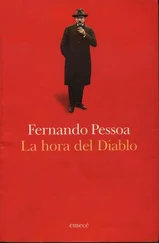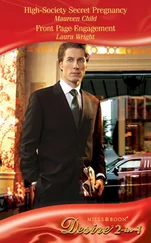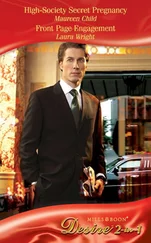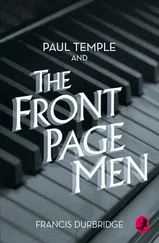“He was outspoken, foul mouthed?”
Dr. Mayhew wore a wistful expression. “No, no, not at all. While the other lads turned the air blue with cussing if they were angry or agitated, Ali clammed up. He was tongue-tied, you see. And English was not his first language.” The headmaster paused, then exclaimed, “Abdulhazar. That’s it. Ali Abdulhazar. The name was enough to make him the butt of the boys’ jokes. With his speech impediment and his accent, when he did manage to speak, he was the center of far too much negative attention from the other boys.”
“He was bullied?”
“I tried to keep them from bullying him, but there was only so much I could do, I’m afraid. When my back was turned, they circled him for the kill—figuratively, of course—like a school of sharks around a juicy tidbit. Most of those boys had been mistreated themselves, you see, so it rather came naturally to them to behave like that. Mind if I . . . ?” Dr. Mayhew said, picking up a pipe.
“Not at all.”
Dr. Mayhew made much of filling, tamping, and lighting his pipe. Finally, he went on: “It was no wonder he courted detention so often, usually by straying off school grounds. The other boys hated having to sit still in my office, but I think Ali rather liked it. First, he got away from the others by wandering off. Then, once he was rounded up, he had my protection for an hour or two. Even if watching me do paperwork had to be deadly dull, it beat being teased by the other boys. I hate to say it, but he may even have built his status by running off so much. The others saw him as devil-may-care, a quality they admired.”
Dr. Mayhew fussed with his pipe some more. “Ali finally got them off his back when he was caught with that girl. What was her name? Of course the incident meant his days were numbered at Wharton, so he couldn’t enjoy the boys’ newfound esteem for him.”
“What incident?”
“In the Pinetum across the way, he was caught in some kind of compromising position with a young girl. The girl’s father was livid. He insisted Ali was masturbating while watching the girl dancing. Pretty girl, I remember, a strawberry blonde, dressed in some kind of scarves. Like that dancer, Isadora Duncan.” Dr. Mayhew paused to reignite his pipe. “The outfit was more unusual than revealing. Innocent-looking, I thought, not sexy. But the girl’s father was beside himself. Absolutely beside himself. The more he cursed and demanded explanations, the more tongue-tied Ali became.”
“Did you observe this, or did the father tell you about it? And what happened to the girl?”
“Oh, I was there, all right. But not before the father was laying into Ali verbally. It was his shouting that helped me locate the boy, who had been missing for about an hour. The girl was crying, but I had the impression she was more cowed by her father’s shouting than by Ali. The mother came running and whisked the girl away. The father was a big man. I remember thinking he was a big Swede when he told me his name. What was it?”
“Swenson, Karl Swenson.”
“That’s it! How did you know? And the girl’s name was Olga.”
“No, that’s the wife. The girl was called Ellen.”
“Yes, yes. You’ve got it! What makes you ask about this?”
“I’ve been trying to find Ellen ever since she went missing a week ago, leaving behind her own little girl, a child called Veronica.”
“Has this been in the papers? I’m afraid I only take the Times now. For the crossword puzzle. Don’t read the local papers much anymore.”
“Yes, Dr. Mayhew, we’ve been covering it. And what you are telling me now is extremely helpful. May I ask, was Arabic Ali’s first language? And what brought him to your school?”
“Right, on the Arabic. His mother brought him to the school, literally and, I suspect, figuratively, too. That is, her inability to handle him—his learning disabilities and speech impediment—and perhaps some over-severe discipline in her household administered by her or, more likely, by her husband—had made the boy unmanageable. Like all of our boys, he could not thrive in a typical public school. But his was a need for less rather than more discipline, along with lots of speech therapy and ESL.”
“You mean English as a Second Language?”
“Right again. We didn’t have those kinds of specialists on hand, unfortunately. And even if we had, it’s unlikely they’d have been proficient in Arabic. Still, perhaps they could have put to rest my question about how tongue-tied he actually was. When he was in trouble or agitated, he sometimes hummed or sort of mumbled. I had to wonder if he was doing the Arabic equivalent of a ‘Hail, Mary,’ if you know what I mean. That’s not a very politically correct way of putting it, but I mean sort of calling on his deity.” Dr. Mayhew shook himself. “Then again, he could have been mumbling a nursery rhyme, pop lyrics, or hurling out curses, for all anyone knew. His native language was a mystery to me.”
“Do you remember him saying anything when he was being hounded by Mr. Swenson?”
“Nothing specific. But it would have been typical for him to sort of clutch his hands around his knees and mumble while looking caught, like a deer in the headlights.”
“What happened to him after the incident?”
“We had to expel the poor bugger. I argued to the board that we should keep him on until a case was proven against him, but they nixed that. The school was in trouble financially and the board feared Swenson’s ire would be the last nail in our coffin. They thought he’d go to the press. As it turned out, Swenson went mum as soon as Ali left. It was a matter of a day or two before the boy’s parents came to collect him. As for his fate after that, I’m in the dark. I wrote down the name of a colleague at another school whom I thought might consider admitting Ali to his program, but I saw the boy’s dad stuff the paper I wrote it on into a trash bin before the family got into their car. All I can say is I hope Ali was able to put his ear to good use.”
“His ear?”
“He had perfect pitch. And he was clever, mechanically. Strange that a boy who faltered at speaking could sing like a lark. According to the music teacher, who came round once every two weeks, he could tell you what note you were playing just by hearing it. After Ali took apart our piano and fixed a broken key, the music teacher wanted to introduce him to a piano tuner he knew. He said the man was getting old and might take on an apprentice. But Ali was expelled before that could come to pass.”
“Are you still in contact with the music teacher?”
“I never see him, but his wife always sends me a Christmas card. This year was no exception. I remember noticing the address was different this year, but I didn’t save it. I never send Christmas cards. I just threw out the envelope.”
“Do you remember anything about the address? Was it in Massachusetts, for instance?”
Dr. Mayhew paused. “No, I don’t remember a thing about where it was. But I do remember thinking, ‘God forbid I ever have to live in a place called Harmony Haven. Appropriate for a music teacher, though, I suppose. You’ll want to know his name, of course. It’s Buxton, Clifford Buxton.”
Regarding his book- and paper-strewn surroundings with an expression blending fondness and chagrin, he continued, “And that brings us to your question about resolutions and resolve. Most of my boys possessed neither. And what kind of mentor would I have been, in the unlikely event that any of them came up with resolutions? A very poor one, I’m afraid. Do you know how many times I’ve made the resolution to sort out this stuff? That number is on the verge of the infinite. But have I exercised any resolve? You tell me,” he said with a chuckle.
Читать дальше












